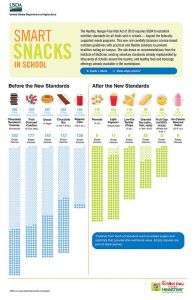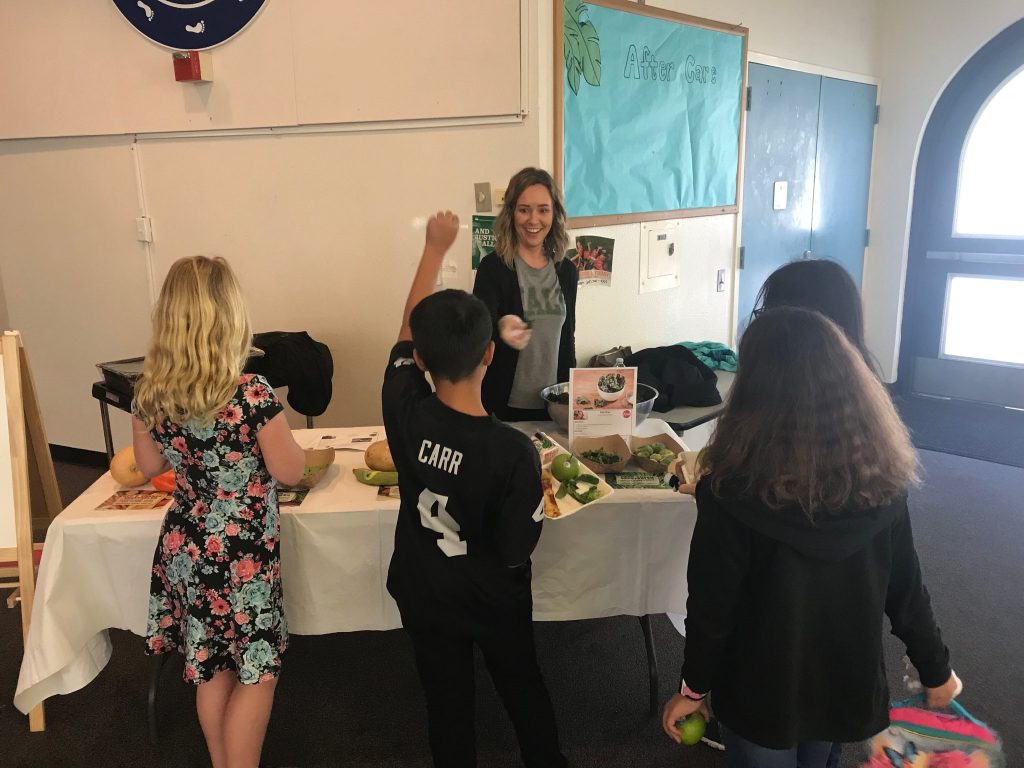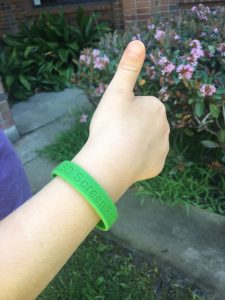
Cookies? Yes please.
There are as many definitions of wellness as there are methods to achieve it, but the wellness program at Coronado Unified School District may very well have the best recipe for success — and it includes chocolate chip cookies.
The wellness overhaul for CUSD began in response to Michelle Obama’s “Let’s Move”  campaign as a measure to curb childhood obesity almost a decade ago. The national action plan tasked the U.S. Department of Agriculture with revising the rules and nutritional standards expected for school lunches for the first time in fifteen years. The new standards, introduced in 2012, incorporated more whole grains, fruits and vegetables, as well as reduced the amount of fat and sodium in meals. Portion sizes and calorie limits were also set.
campaign as a measure to curb childhood obesity almost a decade ago. The national action plan tasked the U.S. Department of Agriculture with revising the rules and nutritional standards expected for school lunches for the first time in fifteen years. The new standards, introduced in 2012, incorporated more whole grains, fruits and vegetables, as well as reduced the amount of fat and sodium in meals. Portion sizes and calorie limits were also set.
During this timely transition, CUSD appointed Charity Campbell as the Director of Child Nutrition Services. Charity is a Registered Dietitian (RD) and holds a Dual Master of Science in Nutrition and Exercise Physiology which followed her undergraduate education in psychology. She quickly put her expertise to work revising the CUSD policy to adhere to the new national standards. In addition to nutritional improvements in school lunches, changes were made to classroom birthday treat practices, bake sale fundraisers, and snacks available for purchase.
“Coronado parents were really responsive to the changes,” says Charity. “Everyone understands that if every kid in every class brings cupcakes for their birthday – that adds up to a lot of cupcakes over the year. The same can be said for fundraisers. Home-baked goods for bake sales were really variable in terms of ingredients and allergens. Now anything brought into the school must be store-bought and with ingredients clearly listed. Parents have responded by getting creative with treats and fundraising initiatives that don’t involve food.”
Campbell credits creativity as fundamental in building a sustainable and attractive food service for the thousands of students across the five campuses in the district, and insists that healthy food options can be delicious and inviting:

“We have cheeseburgers, but they are 100% beef with no added soy or fillers. Our California Burritos are freshly prepared with natural ingredients. Even our cookies are made with whole grains and less sugar, fat, and sodium than the store-bought counterparts.”
Charity adds that there is a salad bar at every school site which features 7-10 vegetable and fruit options daily, thanks to a partnership with a farm to school program with produce from 18 family-owned California farms. Charity says, “The farm to school program allows us to offer the freshest seasonal fruits and vegetables as part of the food service. We get fruit that has been picked on Monday of the week we get it.”

The collective ‘we’ Charity references includes the Active Wellness Committee comprised of Charity and parent volunteers, as well as the 14 staff members employed by the district:
“The nice thing about CUSD is how supportive it is. Anything we want to try is well-received and we can put it into action. I get a lot of inspiration and direction from the staff in the kitchen. They really know these kids and families and genuinely care about them. We have people here that have been creating new recipes and feeding Coronado kids for 27 years.”
Wellness isn’t all about nutrition, however. According to Campbell, CUSD subscribes to the 5210 model of wellness. Specifically: 5= servings of fruits and vegetables, 2= hours or less of screen time, 1=hour or more of active play every day, and 0= sugar-sweetened beverages.
Each year in addition to nutrition the wellness committee chooses another area to focus on. The 2018-19 school year’s priority focus area is the use of screen time.
Charity is realistic about the necessity of screens in today’s era but says there is an important distinction between educational screen time versus recreational screen time.
“There’s a big difference between using screens to research information for a school project and mindlessly scrolling through social media or watching TV,” says Campbell. “Our goal is to be mindful and purposeful about screen time.”

To bring awareness to screen time use, CUSD has deemed the week of April 29th – May 3rd as screen-free week, which Charity says is being well-received by the middle and high schools in particular.
“Students have come up with a lot of ideas for the week, including competitions between classes to see who can achieve the least screen time. It’s been really rewarding to see and really speaks to the goal of overall wellness. The more engaged students are with tracking screen time, the more accountable they become.”
CUSD Screen-Free Week begins April 29th.
In the meantime, use your screen of choice to find out more about the CUSD Wellness program at https://coronadousd.net/departments/food-services-student-nutrition/cusd-wellness-policy/.




